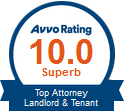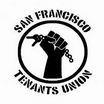A landlord is often ignorant of the law or simply choose to ignore it, a landlord’s right to enter a rented unit is extremely limited. Once a landlord has rented a property to a tenant, the landlord has given-up the “right to possession” and can only legally regain possession with either a) the tenant’s permission, or b) a court order. Thus, since legally the landlord no longer “possesses” the rented property, his rights to enter that property are exceptionally curtailed.
Under state law, a landlord may only enter a rented unit in essentially seven cases:
- In case of emergency
- To make necessary or agreed upon repairs;
- To supply necessary or agreed upon services;
- To exhibit the unit to prospective or actual purchasers;
- To make a return of security deposit inspection;
- When the tenant has abandoned the premises; or
- Pursuant to a court order.
This means that, by law, a landlord cannot enter a tenant’s home simply to “check on something,” “look around,” or conduct a routine inspection.
Furthermore, except in cases of emergency, tenant consent, or when the tenant has abandoned the premises, entry may only be made during normal business hours. The law also explicitly prohibits a landlord from abusing the right of access or requesting access simply to harass the tenant.
Again, except in the case of emergency, consent or abandonment, a landlord must provide the tenant with written notice of the intent to enter. The notice shall include the date, approximate time, and purpose of the entry. The notice may simply be posted on the unit’s front door but it must be left in a reasonable amount of time prior to the intended entry. Twenty-four hours notice is presumed reasonable. It should be noted that reasonable oral notice is allowable if the landlord is attempting to exhibit the unit to a potential buyer and gives the tenant a written 120-day notice – 120 days after that written notice is given, a landlord or her agent can then give only oral notice. However, the same reasonableness and lack of harassment rules still apply.
There is often confusion among tenants regarding the written notice requirement and the 24-hour presumption. There is absolutely no rule that requires a landlord to give 24-hour notice prior to entry. Technically, the law only requires landlords to give “reasonable” notice. Under most circumstances, 24-hours is considered reasonable. However, in an emergency, (such as a burst water pipe or fire), no notice is needed at all. On the other hand, 24-hour notice may not be legally sufficient if, for example, a landlord knows that a tenant is out of town and the reason for the entry could easily be postponed.
It is also important to note that this area of law is quite vague and open to multiple interpretations. Terms like “reasonable,” “necessary repairs,” and “normal business hours” are not self-defining. For example, tenant-rights advocates used to argue that realtors could not force tenants to allow entry into their units during weekend “open houses” since weekends were not “normal business hours.” An appellate court recently explicitly held that weekend open houses were permissible under the law, meaning that, under certain circumstances, Saturdays and Sundays now constitute days of “normal business.”
Given all of this, tenants should be careful when refusing entry to a landlord who has given written notice 24-hours before the desired entry. This is especially true in rent-controlled jurisdictions where failure to allow landlord entry may be a just cause for eviction. Unless the landlord is acting in bad faith, being exceptionally unreasonable, or actively harassing a tenant, it is generally advisable to allow entry. As the old saying goes: “pick your battles.”
Learn more about Elke & Merchant LLP.













